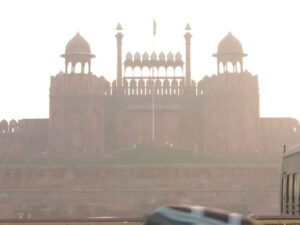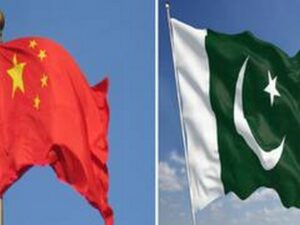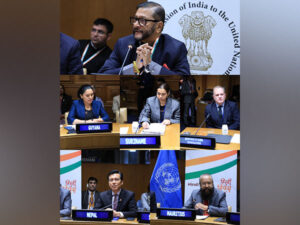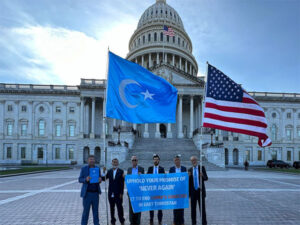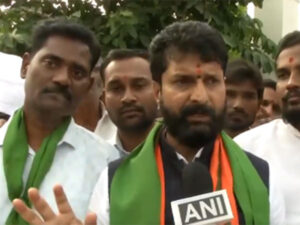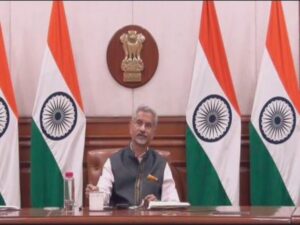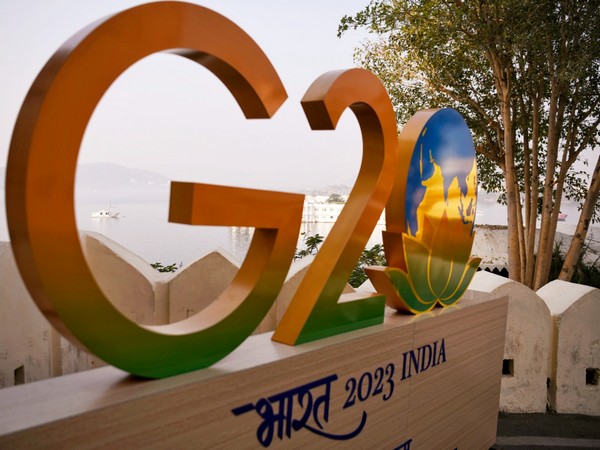
New Delhi [India], December 16 (ANI): As the year 2022 draws to a close and 2023 beckons, there are hopes as there are apprehensions on how the new year will pan out. However, there is an indicator on which countries will lead the world next year. In 2023, Japan is the chair country of the Group of Seven (G7), and India is the chair country of the G20, writes Satoru Nagao in Japanese journal ‘Wedge’.
In an English version of the article published in the Wedge, Satoru says, “If asked which countries will lead the world situation in 2023, Japan and India may have a big responsibility. And little is known in Japan about how India intends to lead the G20. In fact, India is preparing in earnest.”
India officially assumed the presidency of the G20 on December 1, 2022 and has planned to host more than 200 G20-related events in more than 50 cities across the country. Conferences on cyber security, women’s empowerment, sustainable society, etc. have already been held. Prime Minister Narendra Modi held a meeting of chief ministers across the country, saying the G20 was a “unique opportunity to showcase India’s power”.
Foreign Minister S Jaishankar said that he wants to make the G20 Presidency a “national celebration (including the regions of India).” PM Modi also contributed an article to the Yomiuri Shimbun on December 1, which shows his enthusiasm on India assuming the presidency. “India is using the G20 as an opportunity to make the biggest moves possible. What is India trying to do at the G20?” writes Satoru. “The reason why India is putting so much effort into it is that India, which continues to grow, is beginning to gain confidence in its own strength and wants to showcase its strength to the world,” the article reads.
In 2023, India’s population is expected to surpass China’s, making it the world’s most populous country at 1.4 billion. In terms of defence spending, India is already the third largest in the world after the United States and China, Satoru wrote, adding that India’s gross domestic product (GDP) is expected to overtake Japan and become the world’s third largest within the next 10 years. “In order for India’s growth to be correctly understood by the world, we need an opportunity to publicise it properly,” states Satoru.
“The G20 is a good opportunity to show such growth in India. Originally, the G20 consisted of the seven countries of the G7 (Japan, the United States, the United Kingdom, France, Germany, Italy and Canada), which were considered to have the most influence in world politics, and the European Union (EU), which had newly increased its influence. Other members are Russia, China, South Korea, India, Australia, Indonesia, Saudi Arabia, Turkey, South Africa, Mexico, Brazil, and Argentina,” the piece further reads.
“Together, the G20 accounts for two-thirds of the world’s population, 85 per cent of GDP and 75 per cent of international trade. Since there are about 200 countries in the world, it shows that less than 10 per cent of the countries have this much power,” it adds.
Considering this, India would like to lead the countries that have an influence on world politics as the chair country through G20, says Satoru. “However, in reality, the G20 has not produced much better results than the G7, so far. The more countries there are, the more difficult it is to reach a consensus. However, the situation has changed significantly this year, mainly because of the Russian invasion of Ukraine,” he writes.
“When Russia invaded Ukraine, only a handful of countries supported Russia. Western countries, along with Japan, Taiwan, South Korea, Singapore, and later Morocco, condemned the Russian aggression and supported Ukraine. But almost as many countries as those criticizing Russia have distanced themselves from the issue and have taken a neutral stance,” he continues.
Neutral countries have contributed to Russia’s survival by not cooperating with sanctions against Russia, he writes further, adding that at the same time, it has been pointed out that these countries may serve as mediators between Russia and Ukraine and trigger a ceasefire. “As a result, the meaning of the term ‘Global South‘, which was once just a term for poor developing countries, has changed. It has gained more say and has come to be used as a term for a group of nations that demonstrate their own influence from a neutral standpoint when the West and Russia are at war,” the piece goes.
“In short, Russia’s invasion of Ukraine has raised the profile of the G20 as a negotiating forum with the ‘Global South‘. India wants to show its presence as a leading country in the ‘Global South‘, says Satoru, adding that if India wants to lead the ‘Global South‘, it has a big rival in China. “China’s influence is growing rapidly in the countries of the ‘Global South‘. For India, China poses a military threat, including territorial disputes. So India’s response at the G20 is clearly China-aware. India’s awareness of China can be seen in many ways. First, at the G20, it is customary to invite guest countries, not just the 20 members,” Satoru further writes.
“India plans to invite Bangladesh, Mauritius, Oman, Singapore, the United Arab Emirates (UAE), Egypt, the Netherlands, Spain and Nigeria this time. Of these, Bangladesh, Mauritius, Oman, Singapore and the UAE are coastal states in the Indian Ocean. In order to secure India’s influence in the Indian Ocean region, where India is competing with China, it is evident that India seeks cooperation with these countries,” the piece further goes.
This trend can also be seen in the more than 200 events related to the G20. On November 28, just before India assumed the presidency, the former Undersecretary of Foreign Affairs of India, accompanied by ambassadors of the G20 countries, visited India’s Andaman and Nicobar Islands, Satoru notes.
“The Andaman and Nicobar Islands are strategically located at the mouth of the Strait of Malacca. Crude oil is transported to China from the Middle East through the Andaman and Nicobar Islands and into the Malacca Straits. If India has enough military power and blockades here, China will be in trouble. So now, India is in the process of stepping up its military deployment in the Andaman and Nicobar Islands,” writes Satoru.
As India guides the G20 ambassadors and briefs countries on the situation, they will be aware of the power game India and China are playing in the Indian Ocean, Satoru writes, adding that India is trying to show its importance in terms of security in the Indian Ocean and in countering China’s growing influence.
There are other ways in which India seems to have China in mind, by highlighting friendly nations, he states, adding that India has opened a dedicated Twitter account to disseminate information about its G20 presidency. “However, while Indonesia, the chair for 2022, and Brazil, the chair for 2024, along with Japan, the United States and France are often mentioned, China hardly appears. It can be said that India’s true feelings naturally come out as to which countries it prefers. Besides guest countries, India is inviting international organizations as guests. It is noteworthy that India is summoning representatives of the Asian Development Bank, where Japan has a strong influence. This indicates the emphasis placed on Japan’s infrastructure development over China’s infrastructure development pattern,” the piece further goes.
“We aim for the development of nations as people’s movements led by citizens, not top-down,” Modi said in his speech while inaugurating the country’s G20 presidency. “From the above, it seems, India is paying attention to the G20 as an opportunity to show its capabilities to the world. Indeed, India’s role will become more important as it grows. And in order not to lose out to China, India is expected to try to strengthen its ties with Japan and the United States,” says Satoru.
The question is whether Japan will respond to that. In 2023, Japan will chair the G7, he says, adding that Japan will hold many G7-related events and attention will be focused on strengthening relations with the G7. “Strengthening relations with the G7 is important. However, we must avoid a situation in which the G7 does not pay attention to the countries that will be crucial in the next era. Looking ahead, Japan’s strategy should dedicate considerable effort to countries like India. We now need a strategy that looks ahead to the future,” Satoru writes. (ANI)
Chinese G20 delegate calls DWG meeting “very satisfactory”, terms India’s agenda “very comprehensive”
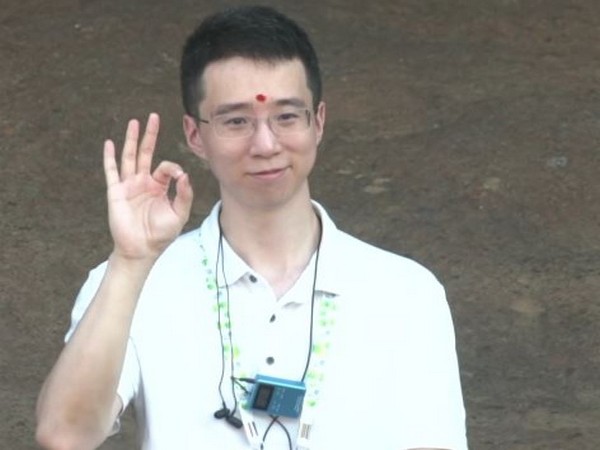
Mumbai (Maharashtra) [India], December 16 (ANI): Chinese delegate Hanwen Tang today lauded the agenda made by India at the Development Working Group (DWG) meeting under its G20 Presidency. Hanwen Tang called India’s agenda “very comprehensive” which he stressed covered many issues that developing nations need right now.
Speaking to ANI, Hanwen Tang said, “It (DWG Meeting ) was very satisfactory, the agenda made by India was very comprehensive , it covered many issues that developing countries need right now. ” He called G20 a “great opportunity” for India to showcase its achievements.
“I think G20 is a great opportunity to show how much India has achieved so the whole world will see that India is a great country and we need more co operations under G20,” Hanwen Tang said. Hanwen Tang stated that India and China accounts for one-third of the population across the world. He stressed that India and China can achieve a lot for developing nations and the world. He emphasized that both nations can cooperate with each other in various sectors.
“I think India and China accounts for one-third of the whole world population, of we work together on economic and other platforms, I think we can achieve a lot for the developing countries and the whole world,” Hanwen Tang said. “I think the border issue is separate from the economic issues. I think, there are a lot of fields where India and China can cooperate with each other so we have to look beyond our differences and work on what we agree upon,” he added.
Speaking to ANI, Hanwen Tang said that India is trying to become a “manufacturing hub.” He added, “the trade balance may be better in future.” Meanwhile, G20 delegates visited Kanheri caves in Mumbai for the excursion.

Daniel Giorev, head of the delegation, European Union, European Commission, said, “Besides, the substantive work we have done over this last days. What’s incredible is to learn more about Indian culture, history, and this specific site about Buddhism. I think India has offered an unforgettable experience to G20 delegates.”
He added, “It was very substantive discussions over three days that have triggered interesting ideas and very interesting paths for the months ahead that now the presidency needs to digest and consolidate for the discussions to continue.”
Takeo Mori, head of the delegation, Japan said, “Its been marvellous. We have a very good discussion in the DWG of the G20, about the SDG and data for development and lifestyle for SDGs.”
Speaking about the meeting in Mumbai, Massimiliano La Marca, head of the delegation, International Labour Organisation said,”The meeting went well and we are very happy about it. We are very grateful to the presidency for all the work done.”
In response to the question about his experience in Mumbai, he said, “We have a lot of different experiences, including cultural events, dancing, food was a new experience for us.”
Notably, the five substantive sessions of the four-day-long DWG meeting concluded in Mumbai on December 15. “Focused deliberations on key global issues of harnessing data for development and collective climate action constituted the third day of the 1st Development Working Group (DWG) Meeting under India’s G20 Presidency in Mumbai, according to the press release issued by the Ministry of External Affairs (MEA).
The MEA in the press release added, “Delegates from G20 countries welcomed India’s focus on SDG 12: ‘Responsible Consumption and Production,’ and deliberated avenues to integrate localized realities and knowledge, delineate scope and scale, and identify policy measures that enable and incentivize shifts in this area.” (ANI)







